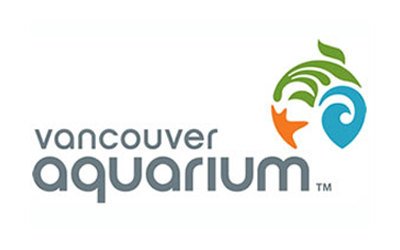Vancouver Aquarium successfully rehabilitates and releases first harbour porpoise
After more than five months of veterinary treatment at the Vancouver Aquarium Marine Mammal Rescue Centre, Levi, a rescued harbour porpoise, was carefully lowered into the waters of Saanich Inlet this morning, before gently pumping his tail fluke and gracefully gliding away. He is the first cetacean (i.e., porpoise, dolphin or whale) to have been successfully rehabilitated at the rescue centre and released back to the wild.
“When Levi came to the Vancouver Aquarium Marine Mammal Rescue Centre as a stranded animal in distress, the odds weren’t in his favour,” explains Dr. Martin Haulena, Vancouver Aquarium veterinarian. “We were hopeful that we could save him but, historically, only about 10 per cent of stranded cetaceans from the Pacific coast survive and are successfully rehabilitated for release back to the wild. Levi’s long-term rehabilitation and subsequent release is momentous for us because it represents a leap forward in our rehabilitation program.”
Levi was found stranded on the shoreline of Saanich Inlet on March 26, 2013, and brought to the Vancouver Aquarium Marine Mammal Rescue Centre, as part of a collaborative-rescue effort with Cetus Research and Conservation Society and Fisheries and Oceans Canada. Too weak to swim on his own, Levi was placed in a specially-designed flotation sling and hand-fed nutrients while staff kept a watchful eye on the ailing animal.
After a series of diagnostic tests, the veterinary team at the Rescue Centre determined that, in addition to severe health problems caused by stranding, Levi had a large, lung-parasite infection and was suspected to have hearing loss.
Over the following months, the veterinary team treated Levi’s lung infection, and worked intensely with him to regain his strength through physiotherapy. Although his progress was slow, he eventually began eating herring on his own and continued to gain strength. By late summer, Levi had begun to display marked improvements. He was swimming on his own, foraging for live fish, and tests showed that his hearing issues had resolved with time.
Levi and his veterinary team had defied the odds—by early September, his health had dramatically improved and he was deemed releasable by Fisheries and Oceans Canada.
This morning, the veterinary team outfitted Levi with a SPLASH tag, a satellite-linked transmitter made by Wildlife Computers, which enables the Rescue Centre team to closely monitor his progress. The tag will provide data to track Levi’s travel, monitor his dive depths and measure how long he is able to dive—data that will help ensure he is successfully transitioning back to life in the wild. After the tag was attached, Levi was transported by boat to Saanich Inlet, where veterinary staff released him back to his natural habitat, under the direction of Dr. Haulena.
“After working with Levi in an intense-rehabilitation effort involving 4,100 staff and volunteer hours over the past five months, it was gratifying to watch the team lower him into the ocean water and know that we will be able to monitor his progress,” says Dr. Haulena. “Our goal is always to return rescued animals back to their natural habitat, and the information we gain from Levi’s satellite tag will help us monitor his progress and contribute to future rescue efforts that will benefit stranded animals across North America.”
Vancouver Aquarium’s Marine Mammal Rescue Centre has been one of the leading facilities in North America to work with rescued harbour porpoises. Two former patients, Jack and Daisy, were rescued as juvenile animals and, following intensive-rehabilitation efforts, were deemed non-releasable by DFO due to their inability to survive on their own. Vancouver Aquarium has continued to provide a home and ongoing care for these two rescued harbour porpoises.
Special thanks to Port Metro Vancouver, Teekay Shipping, Fisheries and Oceans Canada, and Brad Hanson with National Oceanic and Atmospheric Administration, for supporting the Vancouver Aquarium Marine Mammal Rescue Centre with the rescue, rehabilitation and release of Levi.
Vancouver Aquarium is a self-supporting, non-profit society and does not receive ongoing funds to provide around-the-clock care for its rescued and rehabilitated animals. To make a contribution to the Rescue Centre, please visitwww.vanaqua.org/donate.
— submitted by the Vancouver Aquarium


























Comments